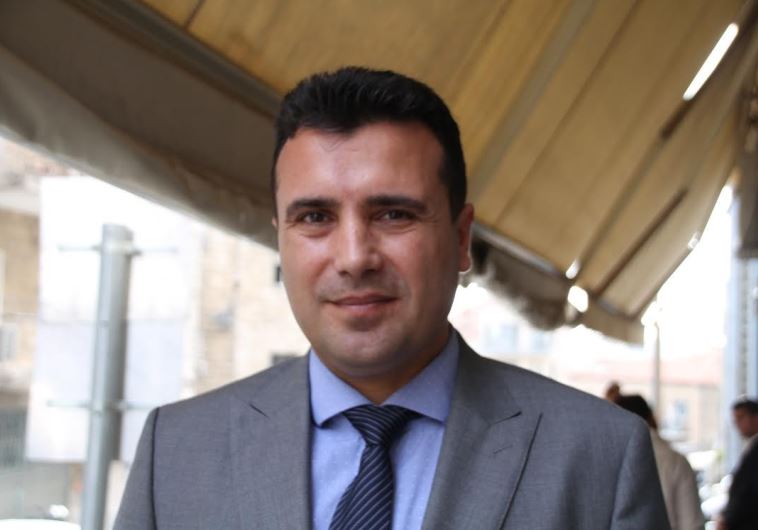Fearless in Jerusalem
Macedonian prime ministerial hopeful talks of freedom and love of Israel.
 Macedonian Opposition leader Zoran Zaev braves the Jerusalem streets and stands outside Mahane Yehuda(photo credit: "BRING BACK OUR BOYS" CAMPAIGN)Updated:
Macedonian Opposition leader Zoran Zaev braves the Jerusalem streets and stands outside Mahane Yehuda(photo credit: "BRING BACK OUR BOYS" CAMPAIGN)Updated: